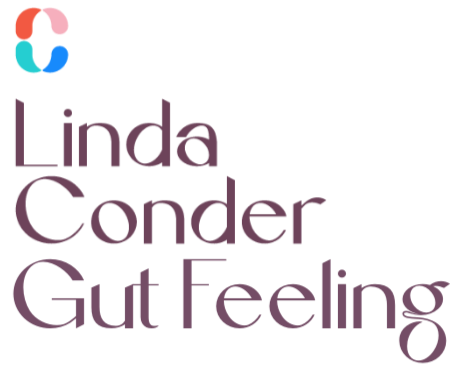Understanding Blood Markers and Their Role in Fertility
When you're trying to conceive, a deeper understanding of your body's hormonal balance and overall reproductive health is essential. Fertility blood tests reveal key insights into how well your body is functioning in relation to ovulation, egg quality, and overall reproductive potential.
Anti-Mullerian Hormone (AMH)
is one of the most reliable indicators of ovarian reserve, reflecting the number of remaining eggs. A low AMH level suggests diminished ovarian reserve, which can impact a woman’s ability to conceive. It’s commonly used in fertility assessments and is a key marker for women undergoing fertility treatments such as IVF (Seifer & MacLaughlin, 2007).
Progesterone
i
is critical in supporting early pregnancy, as it prepares the uterine lining for embryo implantation and sustains pregnancy in its early stages. If progesterone levels are too low, it can cause implantation failure or early miscarriage, which are common fertility challenges (Lee & de Vries, 2010).
Prolactin
elevated levels can suppress ovulation by interfering with the secretion of other reproductive hormones like FSH and LH. High prolactin, which can be due to a condition called hyperprolactinemia, may prevent ovulation and make it difficult to conceive (Melmed & Kleinberg, 2007).
Thyroid-Stimulating Hormone (TSH)
TSH is crucial for regulating thyroid function, and imbalances can lead to irregular menstrual cycles and ovulatory dysfunction. Both hyperthyroidism (overactive thyroid) and hypothyroidism (underactive thyroid) can significantly impact fertility (Biondi & Cooper, 2010).
Thyroid Antibodies (Anti-TPO and Anti-TG)
Elevated levels of thyroid antibodies can indicate autoimmune thyroiditis, such as Hashimoto’s disease, which has been associated with infertility and an increased risk of miscarriage. Monitoring these antibodies is critical in fertility assessments, especially for women with thyroid issues (Toulis et al., 2010).
Testosterone (Total and Free)
Testosterone is commonly associated with male fertility, but elevated levels of testosterone in women, particularly those with PCOS, can lead to ovulatory dysfunction and irregular menstrual cycles. Managing testosterone levels is essential for maintaining reproductive health (Welt & Dumesic, 2006).
Insulin and HOMA-IR
Insulin resistance, measured through fasting insulin and HOMA-IR, is closely linked to PCOS and ovulatory dysfunction. Women with insulin resistance may experience disrupted ovulation due to hormonal imbalances (Ciampelli & Lanzone, 1999).
Vitamin D (25-hydroxyvitamin D)
Vitamin D is essential for maintaining healthy ovarian function and has been shown to improve fertility outcomes, including increased implantation success and reduced miscarriage rates. Vitamin D deficiency can negatively affect reproductive health (Irani & Merhi, 2014).
Homocysteine
Elevated homocysteine levels can disrupt methylation, a process critical for DNA synthesis and reproductive health. High homocysteine levels are associated with a higher risk of miscarriage and poor egg quality (Laanpere et al., 2010).
Iron (Ferritin)
Ferritin is a marker of stored iron. Low iron stores are associated with anovulation and poor egg quality, both of which can impair fertility. Maintaining adequate iron levels is essential for oxygen delivery to reproductive tissues (Haider et al., 2013).
Magnesium
Magnesium supports hormone regulation, particularly in producing progesterone, and helps reduce inflammation. Insufficient magnesium levels can negatively impact hormone production and overall fertility (Guerrera et al., 2009).
Zinc
Zinc is crucial for hormone production, egg maturation, and DNA synthesis. Zinc deficiency can impair ovulation and reduce fertility potential (O'Leary & Samman, 2010).
Selenium
Selenium plays an important role in thyroid function and acts as a powerful antioxidant, reducing oxidative stress in reproductive tissues. Selenium deficiency can impair fertility and increase the risk of miscarriage (Rayman, 2012).
CoQ10 (Ubiquinol)
CoQ10 is essential for energy production in egg cells. Studies have shown that CoQ10 supplementation can improve egg quality, particularly in women with diminished ovarian reserve or advanced maternal age (Bentov & Casper, 2013).
C-Reactive Protein (CRP)
CRP is a marker of systemic inflammation. Elevated CRP levels can impair fertility by affecting ovulation and implantation. Reducing inflammation is an important strategy for improving fertility outcomes (Verma & Wang, 2004).
Ready to Take Control of Your Fertility?
Understanding these blood markers is the first step toward improving your fertility and increasing your chances of conception. To get a comprehensive assessment of your reproductive health, I offer fertility testing packages that include these critical blood markers. You can order a package through my website and start your journey toward better fertility today.
For any questions or personalized guidance, feel free to reach out. I’m here to help you every step of the way!
ReferencesFrattarelli, J. L., et al. (2008). Basal Follicle-Stimulating Hormone Levels in Young Women Predict Ovarian Reserve. Fertility and Sterility, 89(4), 868-875.Diamanti-Kandarakis, E., & Papavassiliou, A. G. (2006). Molecular Mechanisms of Insulin Resistance in Polycystic Ovary Syndrome. Trends in Molecular Medicine, 12(7), 324-332.Alviggi, C., et al. (2019). The Role of Estradiol in the Different Stages of Fertility Treatment. Human Reproduction Update, 25(2), 183-203.Seifer, D. B., & MacLaughlin, D. T. (2007). Müllerian Inhibiting Substance Is an Important Marker of Ovarian Reserve. Journal of Clinical Endocrinology & Metabolism, 92(8), 3196-3202.Lee, P. A., & de Vries, L. (2010). Progesterone and its Role in Human Reproduction. Best Practice & Research Clinical Obstetrics & Gynaecology, 24(2), 311-319.Melmed, S., & Kleinberg, D. (2007). Regulation and Clinical Implications of Prolactin Secretion. Nature Reviews Endocrinology, 3(9), 599-606.Biondi, B., & Cooper, D. S. (2010). The Clinical Significance of Subclinical Thyroid Dysfunction. Endocrine Reviews, 31(2), 151-170.Toulis, K. A., et al. (2010). Thyroid Autoimmunity and IVF Outcome: A Systematic Review and Meta-Analysis. The Journal of Clinical Endocrinology & Metabolism, 95(9), e2750-e2759.Welt, C. K., & Dumesic, D. A. (2006). The Pathophysiology of Hyperandrogenism in Women. Journal of Clinical Endocrinology & Metabolism, 91(10), 3835-3841.Verma, S., & Wang, C. H. (2004). The Relationship between CRP and Atherothrombosis. Current Atherosclerosis Reports, 6(1), 43-47.
MEDICAL DISCLAIMER
The information found on Linda Conder Gut Feeling or any of its media platforms is intended for informational and educational purposes only. Any statements made on these platforms are not intended to diagnose, cure, treat or prevent any disease or illness. Please consult with your medical practitioner before making any changes to your current diet and lifestyle.

